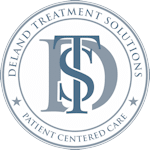For many people, addiction began as a dependence on the substance not to get high, but purely for other purposes. This is particularly true with people who developed an addiction to stimulants.
Methamphetamine, otherwise known as meth, is one such stimulant. It is a central nervous system (CNS) stimulant and is currently the most popular one in both legitimate and illicit use. In the US, 0.8% of males and 0.4% of females use methamphetamines.
Most meth sold in the US is manufactured and distributed by Mexican drug trafficking organizations. Nearly 70% of law enforcement agencies in the western and midwestern areas of the United States view methamphetamine and fentanyl as the greatest threats to their populations.
“Club drugs” such as ecstasy, meth, cocaine, ketamine, LSD, and GHB are primarily used in higher-income settings by young people. It is so widely abused that meth addiction treatment accounts for a large portion of substance abuse rehabilitation programs everywhere.
Properly used, it is a second-line treatment for attention deficit hyperactivity disorder (ADHD) and obesity. As a recreational drug and abused substance, it is mostly used by people seeking to be better at what they do.
Meth is also one of the earliest abused substances, as even students have become reliant on it to keep them awake, alert, and able to focus during their studies. Many of those who learn to depend on it early on do so well into adulthood, making it a long-term abused substance.
How is Meth Addiction Developed?
 Unlike other abused substances which leave the user in an extremely relaxed state almost to the point of stupor or coma, meth tends to do the opposite, removing feelings of sleepiness and fatigue and giving short bursts of energy per use.
Unlike other abused substances which leave the user in an extremely relaxed state almost to the point of stupor or coma, meth tends to do the opposite, removing feelings of sleepiness and fatigue and giving short bursts of energy per use.
As such, most who use it don’t really see it as a bad habit, but as more of something that gives them a competitive edge. This false justification of the habit is what often leads meth users into full-blown addiction, as they start believing that without the substance, success could not be achieved.
Furthermore, because meth is often abused earlier on, it becomes so deeply ingrained in the user’s personality that quitting becomes immensely difficult. The harsh fact of meth addiction rehab is that in reality, it is quite avoidable, and with proper counseling, relatively easier to kick than other addictions.
People who suffer chronic pain tend to be addicted to painkillers, and to an extent, this is to be expected. People who develop an addiction to meth, however, do so for no other reason than the misguided belief that they truly need it.
From the time that meth was first used to help stay awake in class to the time that a professional presentation is to be delivered to the board, meth has often been the go-to drug of choice. In the minds of meth abusers, to suggest that the substance is anything other than helpful would be inconceivable.
Contact Us
CALL US NOW
DeLand Treatment Solutions will iron out the details for you in a manner that will make you confident in your path to sobriety. That first simple call is your ticket to making DeLand Treatment Solutions your solution for addiction. Get the freedom from addiction that you deserve today.
Call Us Now (386) 866-8689What are the Signs and Symptoms of Meth Addiction?
Contact Us
As with any case of long-term substance abuse, hiding the signs and symptoms could prove to be difficult. Many of the symptoms become chronic and quite pronounced in the person, as their body begins to suffer from the damage brought on by prolonged and frequent substance abuse.
Hyperactivity and Inability to Keep Still
Substance abuse is habit-forming, and as a habit, the abuser tends to take the substance at any opportunity they could. The initial mentality with meth was “just this once to get it done” until it eventually became “I’ll take it now in case I need it”.
Frequent use of meth results in feeling like sitting and keeping still is impossible. Meth users often talk incoherently fast and continuously at times and will keep shifting from standing to sitting to standing once more.
Insomnia and Erratic Sleeping Patterns
The effect of a stimulant is to keep a person awake and active. Frequent and prolonged use tends to magnify this effect to the point that the person could not get a decent sleep.
There are those who find it so difficult to sleep that their health has already suffered from it. Others experience either irregular sleeping patterns or insufficient sleep whenever they try to do so.
Paranoia, Agitation, and Irritability
Those who take stimulants frequently tend to be:
- Jumpy
- Skittish
- Anxious all the time
- Easily irritated
This could be because of the severe lack of rest and sleep, and also from a heightened and prolonged sense of being alert, which leaves them highly strung. Some have been described as being highly paranoid and overreacting to the slightest thing. They are easily startled, temperamental, and oftentimes difficult to reason with.
Twitches, Nervous Ticks, and Jerky Motions
This symptom is particularly noticeable as the person appears to be immensely clumsy at times, knocking down and hitting things with sudden movement. In reality, these are unconscious muscular spasms that they are barely aware of.
These twitches could also be seen in sudden head jerking and facial spasms. In some cases, it appears as if they keep on sneering or one of their eyes keeps on blinking rapidly.
Wild-looking Eyes
The facial twitches and sudden blinking are not the only disfigurement experienced by people with a meth addiction. Due to prolonged stimulation, the pupils of their eyes dilate and make them look wide-eyed all the time.
Their jerky motions are also mirrored by their eyes, manifesting in rapid eye movement, or in an inability to focus their gaze on just one thing, as it appears that everything around them catches their attention.
Drastic Weight and Appetite Loss
There are cases where methamphetamine is prescribed for people with obesity, as it is a known appetite suppressant. When abused, however, drastic weight loss occurs, with the person having little or no appetite to eat at all.
This is particularly dangerous as it not only deprives the body of needed nutrients but combined with a lack of sleep, it could very well cause the body to simply shut down. At the very least, meth abusers often experience severe dehydration and malnourishment.
What Activities are Involved in Meth Addiction Treatment?

As opposed to some aspects of treating people addicted to painkillers, where the onset of the physical issue of feeling pain once more is addressed, meth addiction treatment focuses more on convincing the substance abuser that there really is no need to use meth.
Pain is a very real sensation, and no amount of convincing will work on a person experiencing chronic pain. Getting hooked on painkillers this way is almost something to be expected. Needing substances to stay awake, however, is both simple to debunk but almost impossible to feed to someone addicted to meth.
This is particularly true for those who have used it for quite some time already. Anything they are capable of doing they will attribute to meth, even if it’s not true. This is the true challenge of rehabilitating meth abusers.
Cognitive Behavioral Therapy
The challenge in changing a meth abuser’s behavior lies in convincing them that they really don’t need meth to do all the things that they are capable of doing, and at the same time convince them to continue doing these things while not on meth.
During meth addiction rehab, there is an increased effort on the part of the therapist in this aspect because the negative that the meth abuser sees is in not being able to do things without meth, whereas the negative is that the therapist wants the meth abuser to see lies in using meth.
Cognitive-behavioral therapy (CBT) seeks to correct this by fostering a different perspective and emotional response of the meth abuser towards their own abilities. This encourages the recovering person to embrace meth addiction treatment,
Matrix Model
The Matrix Model is an intensive and comprehensive approach to meth addiction rehab. It is typically a 16-week treatment process that puts together behavioral therapy, family education and counseling, the inclusion of a 12-step program, and promotion of activities that steer the patient away from anything that hints at drug use.
So far, this model has proven to be quite effective, mainly because it involves intense monitoring and therapy to convince the patient that they can be active and perform well even without using stimulants like meth.
Contingency Management Intervention
Behavior and mental reinforcement by way of incentive and reward have often proved to be effective. This also necessarily includes meth addiction therapy.
As the feeling and effect of meth use are quite real, it falls to reason that users feel it is a reward. This program seeks to shift that perspective into understanding that there are other rewards as well, by introducing actual incentives for undergoing treatment and for staying sober.
Contact UsTrue Recovery Begins with Deland Treatment Solutions
Being sober doesn’t begin with just quitting bad habits. It begins with the right thoughts that lead to the right actions, and that is what we pride ourselves in being able to do with our patients here at Deland Treatment Solutions.
We don’t look to helping people recover quickly, because we put more value on helping them recover permanently. Reach out to us today.
References

Years of experience
Our leadership team has extensive experience in dual-diagnosis treatment and is ready to help those who are struggling with substance use and mental health.

Specialists
Our staff consists of many licensed mental health treatment facilitators and other staff who are ready to share their experience and their success.

Happy patients
Deland Treatment Solutions has helped over 2,000 people who have struggled with mental health problems find freedom to normal and healthy life.
Contact Us
GET IN TOUCH
Reaching out to Deland Treatment Solutions may be the most important call of your recovery process. A caring professional is waiting for your call to be your guide to addiction-free living.
 info@shc.health
info@shc.health 